
|
|
||||
Forest & Forestry
Profiles by Michigan Legislative District
Michigan citizens are dependent upon healthy forests and a healthy forest industry for a variety of goods, as well as quality lifestyles and recreation opportunities. These forest profiles help illustrate some of the characteristics of forests and forest industry by Senate District so that legislators, legislative staff, and other interested people might better understand these resources. Profiles for each legislative district can be accessed through the index at the bottom of this page. The files are in PDF format and require Adobe Acrobat Reader to open and view them.
Forest Descriptors
There are many characteristics of Michigan's forests that can be used. These profiles were not intended to be a comprehensive review of these characteristics. Two characteristics were selected to help illustrate the nature of our forests. The ownership category of a forest will often determine much about how that forest is managed and what characteristics that forest might have. Nearly half of Michigan's forest is owned by families and individuals, about 320,000 people. The remaining portion is owned by the State of Michigan, the federal government, forest industry, and local governments. Targeted efforts on managing family forests for the long-term will have a tremendous impact on the future of Michigan's forests. Each profile also contains a bar chart of the ten most common trees in each District.
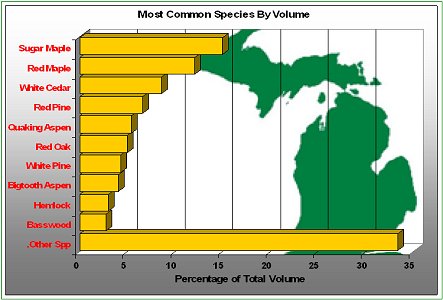
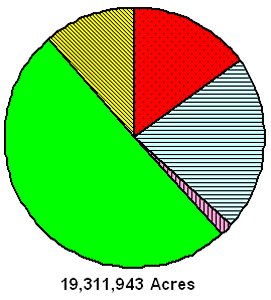
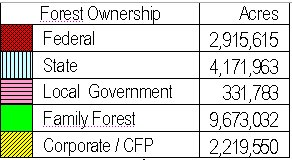
Michigan Forest Industry
Forest industry comprises a wide range of businesses. A large portion of the forest economy consists of traditional logging and trucking enterprises, sawmills, and pulp mills. However, the majority of the forest economy has a diverse array of additional value-added businesses such as paper coating, furniture, crafts, millwork, adhesives, boxing, pallets, and many others. The value of shipments from Michigan's wood products industry was $8.6 billion in 2002, with a total payroll of $1.5 billion (US Census Bureau 2002 Economic Census). Just over 45,000 people are employed in the industry, with over 100,000 jobs directly and indirectly attributable. Most of the industry resides in the southern counties, but the relative impact is greater in the north. The forest industry is certainly a key piece of Michigan's economy.
Forest industry often suffers from a negative environmental public image. However, wood is the single most environmentally-friendly raw material at our disposal. Negative environmental impacts are substantially greater for products made from petroleum, metals, or concrete. Additionally, wood can be harvested in an ecologically sound and sustainable manner, and largely has been for decades in Michigan. Forest industry has an important and growing high-tech component, together with good jobs and excellent wages. In many ways, the industry is on the "cutting edge" of technology, from harvest equipment to wood utilization. Each person in the United States uses about 4.5 pounds of wood each day (about half a two-by-four). Michigan is a net importer of wood, yet we harvest less than half the annual growth in our forests. With the nation's fifth largest forest resource, tremendous potential exists.
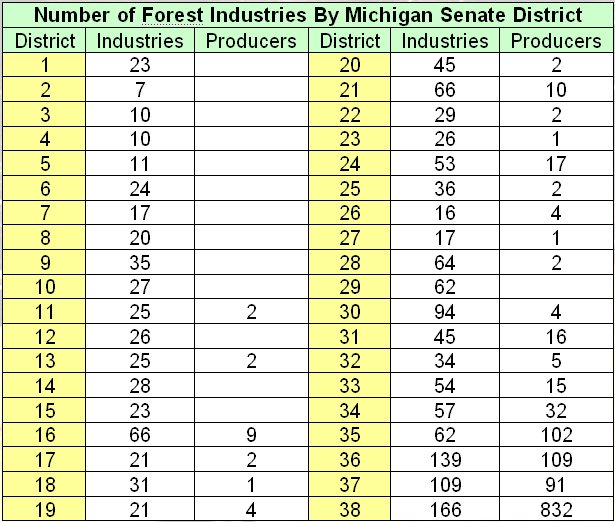
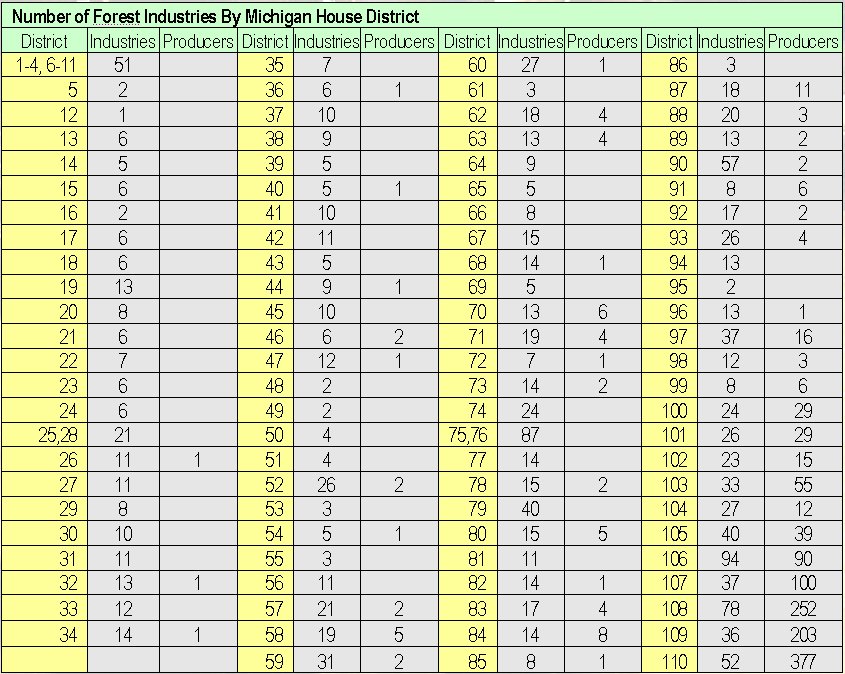
The sources for these data were the U.S. Forest Service inventory data (2005), DNR Commercial Forest Program acreage (2004), the DNR Wood Products Directory data (2005), and Sustainable Forestry Education records (2005). The Michigan legislative district maps were provided from the website [www.legislature.mi.gov].
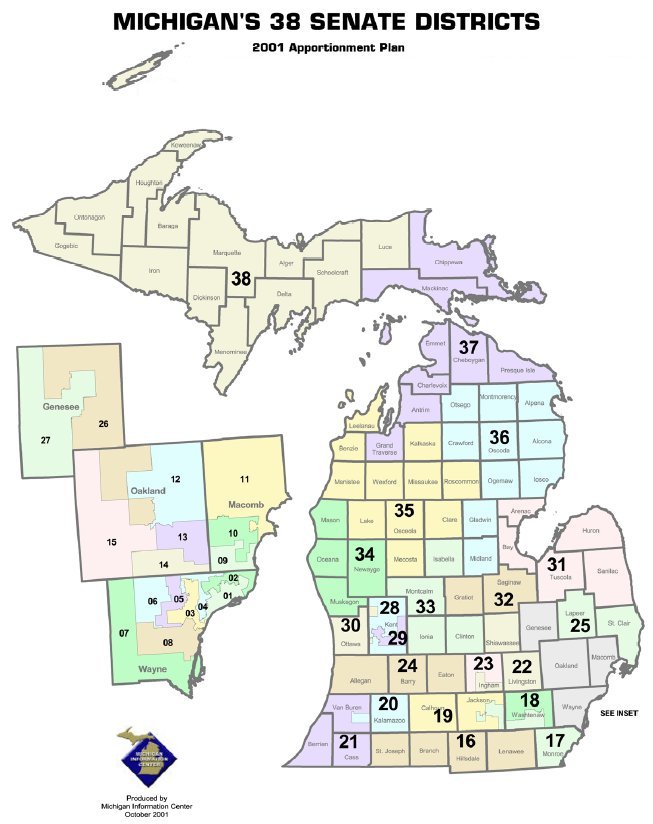
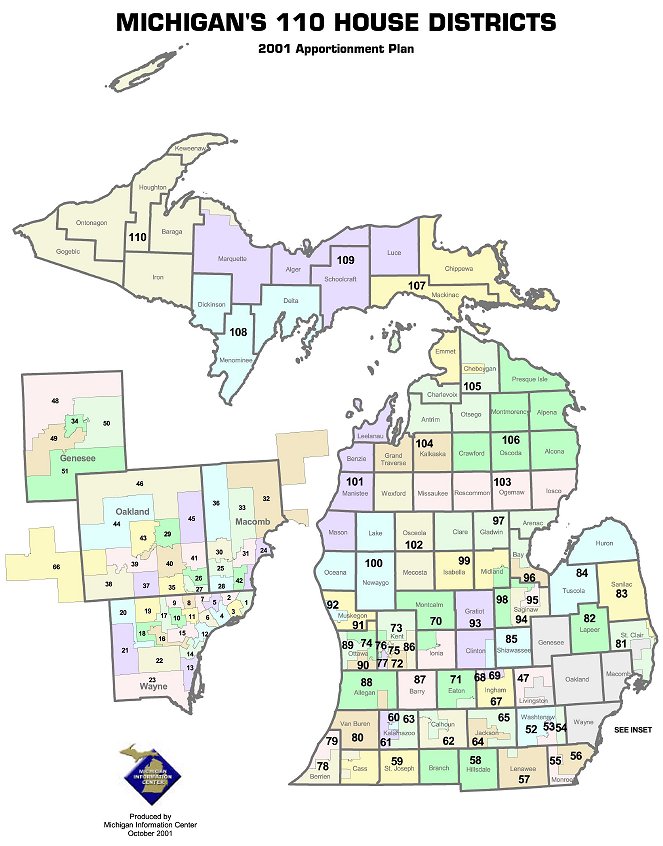
Index to Forest & Forestry Profiles for Michigan Legislative Districts
|
Senate Districts
|
House Districts
|
||||
![]() TOP
Press arrow to return to
the top of this page.
TOP
Press arrow to return to
the top of this page.
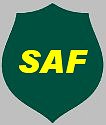
This website is maintained
by Bill Cook, Michigan State University Extension
Forester in the Upper Peninsula. Comments, questions,
and suggestions are gratefully accepted.
Last update of this page
was
1 March, 2006
This site is hosted by School of Forest Resources and Environmental Science at Michigan Technological University.